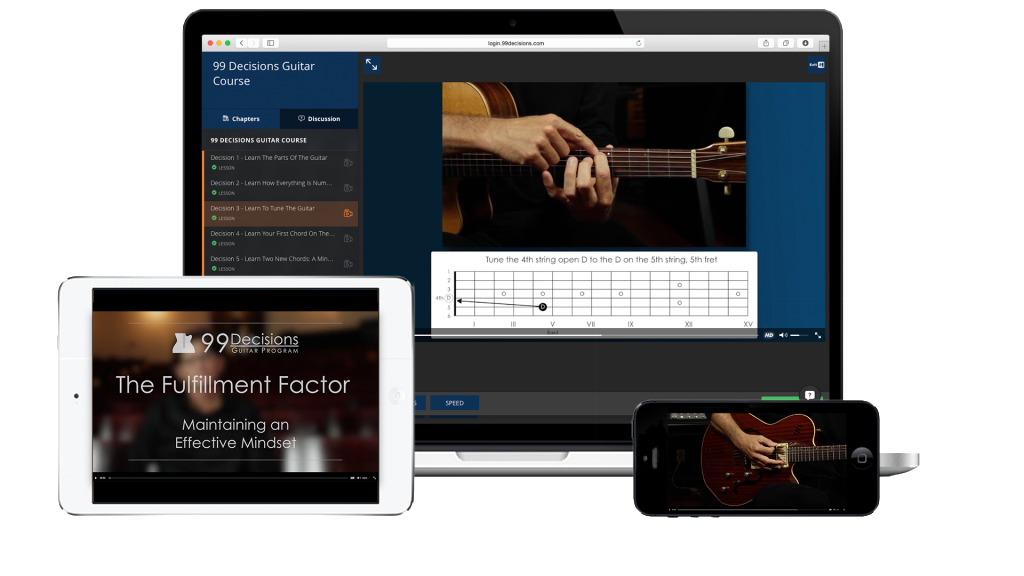If you are new to the world of learning scales on the guitar, you might be fascinated (better word than “overwhelmed”) with all there is to explore when it comes to the learning all the patterns on the fretboard. There are, indeed, myriad arrays of the notes of any scale and I understand how it can get a bit daunting at times.
As always, the key is to approach the subject in an organized manner. Start with one scale & spend time with each of the patterns of that scale so that you can get it into your eyes, brain, & fingers.
However, one particular thing I deal with frequently with students is that they don’t really establish a concept in their minds about what a scale really is.
So before you pick up your guitar, perhaps you could become more informed as to the fundamental concept of this important piece of musical vocabulary.
I always suggest that you do you own research on the definition of a scale. If you start with Wikipedia, you will notice that it gives you a very technical explanation. Then maybe you could visit other sites, read other books & talk to other players and get their ideas about the subject. This is a good way to learn about anything really. Just be prepared to end up a tad confused with all the different versions of the concept you will undoubtedly encounter. But that’s okay because the confusion is part of the process. It will all eventually settled into an understanding that you feel comfortable with.
The cognition of what a scale is, I feel, is crucial to the effective utilization of the scale to make music.
Here’s my take on it…
• The true identity of a scale is that it is merely a group of five, six, or seven different notes that possess a certain quality of sound when used together in melodies & chords. By quality, I mean “color” or “mood” or “flavor… whatever qualities you ascribe to music when you hear it.
• One of the notes in any scale is going to be the “tonic” (or “root“) and it is that note which defines the “key” of the scale. The rest of the notes also have their own distinct quality (see above definition of quality, but add the word “gravity”).
• A scale pattern on the guitar is not a “scale” in & of itself. It is an arrangement of the notes of that scale. The commonly used patterns are merely all the notes of the scale within reach of a particular position on the fretboard (give, or take, a fret). Think “ergonomics“.
• There is a disproportionate emphasis by guitarists on the starting note of a scale pattern. More on this later.
(A Matter of Scale- Part 2 & A Matter of Scale- Part 3 )
I find that most music students quickly figure out that knowing what key you are in is very important in playing music, but they often can’t really explain what a key is. That would be another great research project… define “key” in music.
I invite you readers to share your own ideas about & experiences with scales here and maybe we can, together, create a concise & accurate be all/end all scale definition that will finally resolve any issues & ambiguities about what a scale really is.
Or isn’t.



2 Comments
Mark Bernstein
January 11, 2015This is a great course of instruction. I’ve been playing for a long time, but have never been truly happy with the end result. Going back to basics and working through the material has really inspired me to rethink the way I approach my decisions.
Thank you, Matthew. This is an amazing new tool that I will be recommending to my friends who are beginners and seasoned players.
-m-
Daniel Larkin
January 22, 2015These are simple, straight-forward, thoroughly explained and easy to digest guitar lessons.
It is widely believed that the most difficult part of learning any new skill is the very beginning of the process and those awkward first steps we all must take. If you are, or have ever been, intimidated by the thought of learning to play the guitar…you no longer have a valid excuse.
Matt is the ideal instructor to walk us through those beginning stages and gives every player that solid foundation that is crucial for establishing proper technique and good practice habits…
Thanks Matt….thoroughly enjoying each and every lesson.
Leave A Response